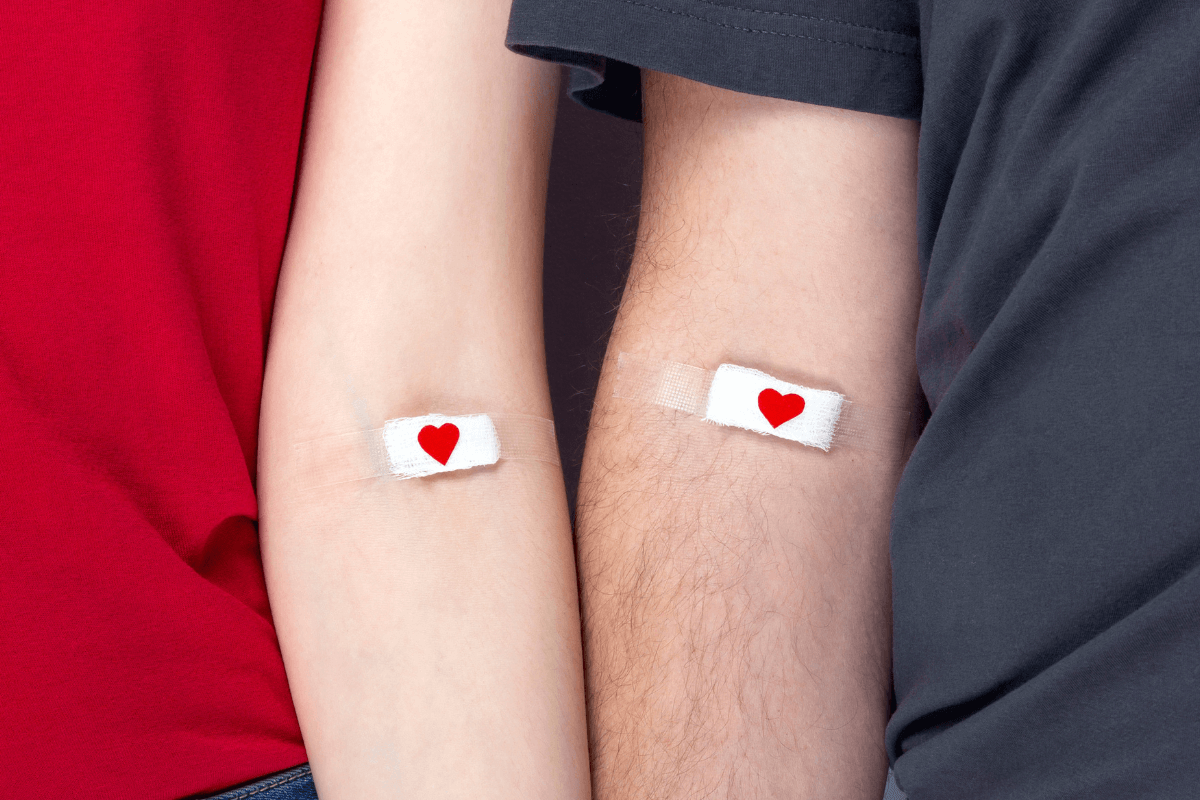
(Shutterstock Photo/Rybalchenko Nadezhda)
PHOENIX – Advocates are pushing the Food and Drug Administration to allow gay and bisexual men to donate blood as the country continues to deal with one of the worst blood shortages to date.
When Johnny Martin, a voting rights organizer with the Arizona Faith Network, was 17 and old enough to donate blood, he knew he was gay and thought he would never be able to donate blood because of his sexuality.
“There’s nothing about being a gay person or a gay man in particular that makes my blood any more dangerous or less desirable when it comes to somebody who many need it to save their life,” said Martin, now 29. “Obviously, we want to make sure that the blood donations are safe, but let’s not throw any group or community under the bus.”
According to the Human Rights Campaign, gay and bisexual men have higher chances of contracting bloodborne diseases, and at the beginning of the HIV/AIDS epidemic in the 1980s, men who had sex with men were banned from the donor pool. The lifetime ban was changed in December 2015 to allow gay and bisexual men to donate if they had not had sex with other men for 12 months. In April 2020, that abstinence period was reduced to three months.
US Rep. Greg Stanton, D-Phoenix, is among those pushing the FDA to remove restrictions and prohibitions preventing gay and bisexual men from donating blood while supplies nationwide still are limited due to the effects of the pandemic.
In a February letter to leaders at the FDA, the Department of Health and Human Services and the White House COVID-19 Response Team, Stanton urged them to allow “all healthy Americans to donate blood” by repealing the rule on gay and bisexual men.
“The reality is we need that blood to help save lives, and I know there are so many gay men that would love to help others by giving blood, so we don’t want to engage in self-defeating public policy,” Stanton told Cronkite News.
A Dire National Shortage
The American Red Cross announced in January that the country was facing its worst national blood shortage in more than a decade, which led to doctors having to pick and choose who received transfusions.
“While some types of medical care can wait, others can’t,” Dr. Pampee Young, chief medical officer of the American Red Cross, said in a statement in January. “We’re doing everything we can to increase blood donations to ensure every patient can receive medical treatments without delay, but we cannot do it without more donors. We need the help of the American people.”
People eligible to donate answered the call to action.
Courtney Slanaker, the executive director for the American Red Cross in southern Arizona, said the amount of blood in the national blood bank slowly is returning to normal. But she urged people to donate so that a drastic shortage doesn’t happen again.
“At the height of the blood crisis, we were operating with a less-than-one-day supply of blood,” Slanaker said. “A good place for us is about a five-day supply of blood, and since the Red Cross supplies 40% of the nation’s blood supply, we have to collect on average about 13,000 to 13,500 units of blood daily to meet that.”
Donor Eligibility Rules
But blood banks are at the mercy of the FDA when it comes to donor eligibility rules. The Red Cross is working closely with the agency to “find a pathway forward,” Slanaker said, and it’s working with other blood centers Vitalant and OneBlood on an FDA-funded study to evaluate the individual risk factors of men who have sex with men when it comes to donating blood.
“It’s really the first step in getting data to help the FDA really determine if the donor history questionnaire based on individual risk would be as effective right now,” Slanaker said. “If the study’s scientific evidence supports the use of different eligibility questions, it could lead to a lot greater efforts around the (men who have sex with men) eligibility criteria.”
Casey Simon is the senior director of health care operations at the Southwest Center for HIV/Aids, an integrated medicine and wellness clinic with an emphasis on HIV treatment and prevention. He said at this point, the restrictions stem from fear and stigmas of the LGBTQ community.
“HIV has a little bit of a different path to being detectable in your blood, which we do recognize from a science standpoint since it can take up to three months for HIV to be detectable,” he said, noting the stigma still is affecting scientific decisions and unnecessarily excluding potential donors. Simon and his husband have been married and in a monogamous relationship for a year and test regularly for HIV, but they still can’t donate blood.
“We want to be treated the same way as any heterosexual couple, and we advocate for risk-based approach,” he said. “But regardless of our prevention status, knowing our status and our relationship type, we’re omitted from being able to help in the middle of the biggest blood shortage crisis in our lifetime.”
Looking for the latest Arizona news? Sign up for our FREE daily newsletter.

He said what? 10 things to know about RFK Jr.
The Kennedy family has long been considered “Democratic royalty.” But Robert F. Kennedy, Jr.—son of Robert F. Kennedy, who was assassinated while...

Here’s everything you need to know about this month’s Mercury retrograde
Does everything in your life feel a little more chaotic than usual? Or do you feel like misunderstandings are cropping up more frequently than they...

Arizona expects to be back at the center of election attacks. Its officials are going on offense
Republican Richer and Democrat Fontes are taking more aggressive steps than ever to rebuild trust with voters, knock down disinformation, and...

George Santos’ former treasurer running attack ads in Arizona with Dem-sounding PAC name
An unregistered, Republican-run political action committee from Texas with a deceptively Democratic name and ties to disgraced US Rep. George Santos...




